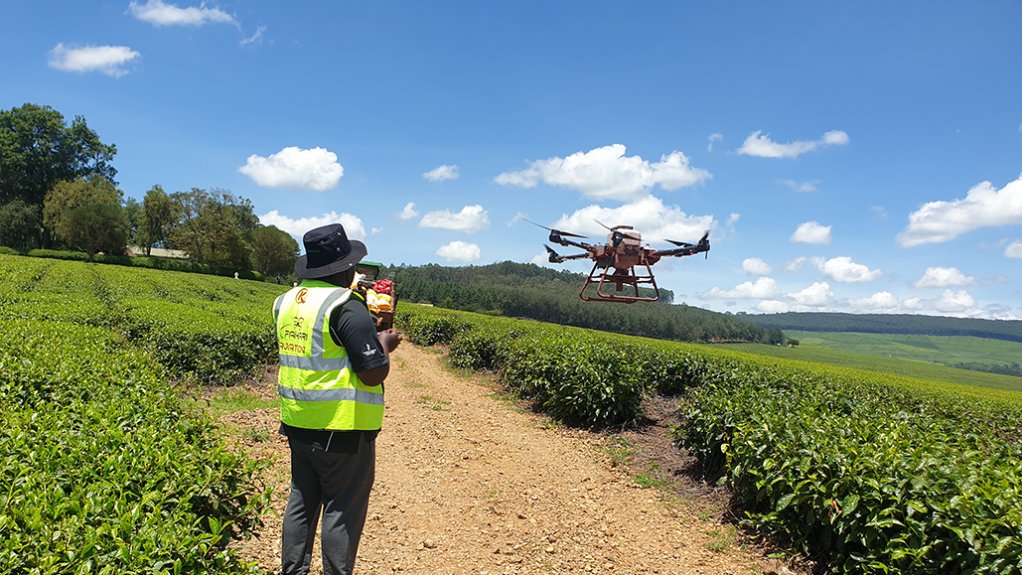Survey confirms farmers remain innovative during crisis periods
A survey conducted by the Human Sciences Research Council (HSRC) finds that more than two-thirds of local agribusinesses managed to implement innovative activities between 2019 and 2021, despite disruptions caused by the Covid-19 pandemic and other challenges.
The respondents to the South African Agricultural Business Innovation Survey indicated that 63% of these businesses had undertaken process innovations, while 38.5% of respondents had undertaken product innovations.
The survey results also show that agribusinesses implementing innovations employed more people. They also expanded their market reach and developed their intellectual property more so than those without innovations.
The survey covered animal and crop farming, forestry and fisheries.
It aimed to measure the extent to which commercial agribusinesses in South Africa introduced new or improved products and business processes.
“The results demonstrate that South African agriculture businesses have shown remarkable resilience in the face of adversity, having adapted and innovated their way out of the crisis,” says HSRC survey lead Yasser Buchana.
“While there is still room for improvement, compared with other countries, with the right innovation ecosystem, supported by progressive sectoral innovation policies, our agriculture sector has the potential to withstand shocks and remain competitive,” Buchana explains, adding that this resilience is crucial for food security.
The HSRC’s Centre for Science, Technology and Innovation Indicators (CeSTII) compiled the survey on behalf of the Department of Science and Innovation (DSI).
KEY FINDINGS
The HSRC finds that the highest percentage of businesses engaging in innovative activities (72.9%) was observed among medium-sized agribusinesses, closely followed by large agribusinesses (70.8%).
Small agribusinesses reported an innovation activity rate of 66.4%, while 57.2% of very small agribusinesses were classified as innovation-active.
The most prevalent advanced information and communication technologies (ICT) adopted by agribusinesses were precision agriculture, air and soil sensors and smart plant and animal breeding, with about 40% of all innovation-active agribusinesses using or implementing these technologies.
Moreover, more than 50% of innovation-active businesses engaged in cereal and fruit production adopted precision agricultural technologies, while a significant number of innovation-active businesses in livestock production adopted precision livestock farming technologies.
Innovation-active agribusinesses sold or exported their products or services to diverse markets in South Africa and internationally, with 60.9% of fruit and related crop businesses reporting a presence in the European market. Europe remains the largest international market for innovation-active South African agribusiness.
Fruits and related crops, as well as vegetables and related crops, also showed growth in Asian markets at 56.7% and 3.7%, respectively.
The spread of innovation-active agribusinesses varied across provinces in the 2019 to 2021 period; in the Northern Cape, North West, and Western Cape provinces, the highest proportions of all agribusinesses were innovation-active at 87.3%, 90% and 75.2%, respectively, while proportionally fewer innovation-active agribusinesses were based in KwaZulu-Natal (43.5%), the Free State (55.7%) and Mpumalanga (55.1%)
Additionally, innovation-active businesses accounted for the highest percentage of those employed in a subsector, with 82.4% of employees in the animal and crop farming subsector working in innovation-active businesses, 69.8% in fisheries and 59.1% in forestry.
In the animal and crop farming subsector, about 22.7% of agribusinesses rated the importance of increased revenue resulting from innovations as “high”.
Reduced cost resulting from innovations was rated highest by forestry businesses, which comprised 21.4% of innovation-active businesses.
In terms of environmental benefits, 26.2% of animal and crop farming businesses placed high importance on soil fertility, and 41% of forestry businesses highlighted the importance of increased water preservation and biodiversity preservation.
Barriers to innovation cited by the respondents included human capital, technological and market access.
The HSRC says businesses in the forestry subsector faced significant challenges related to labour shortages, with 87.6% of forestry businesses rating the lack of access to labour as a highly important factor impeding innovation.
Access to ICT was rated a highly-important barrier for about 15% of businesses in animal and crop farming, and for 17.9% of forestry businesses.
The DSI’s goal is to harness science, technology and innovation to build a vibrant and economically sustainable agricultural sector, through bio-innovative technologies, products, processes and services contributing to increased productivity, competitiveness, food security and rural economic development.
“The Agricultural Business Innovation Survey data provide fresh evidence on the innovation capabilities of firms in the three sectors, which will be of value to inform the design of a national Agriculture Science, Technology and Innovation Roadmap.
“The data is equally significant for monitoring the implementation of the Agricultural, Forestry and Aquaculture Master Plans. We look forward to engaging with policy actors and other sectoral stakeholders to draw out relevant policy evidence and insights from the data,” says CeSTII executive head Dr Glenda Kruss.
Article Enquiry
Email Article
Save Article
Feedback
To advertise email advertising@creamermedia.co.za or click here
Press Office
Announcements
What's On
Subscribe to improve your user experience...
Option 1 (equivalent of R125 a month):
Receive a weekly copy of Creamer Media's Engineering News & Mining Weekly magazine
(print copy for those in South Africa and e-magazine for those outside of South Africa)
Receive daily email newsletters
Access to full search results
Access archive of magazine back copies
Access to Projects in Progress
Access to ONE Research Report of your choice in PDF format
Option 2 (equivalent of R375 a month):
All benefits from Option 1
PLUS
Access to Creamer Media's Research Channel Africa for ALL Research Reports, in PDF format, on various industrial and mining sectors
including Electricity; Water; Energy Transition; Hydrogen; Roads, Rail and Ports; Coal; Gold; Platinum; Battery Metals; etc.
Already a subscriber?
Forgotten your password?
Receive weekly copy of Creamer Media's Engineering News & Mining Weekly magazine (print copy for those in South Africa and e-magazine for those outside of South Africa)
➕
Recieve daily email newsletters
➕
Access to full search results
➕
Access archive of magazine back copies
➕
Access to Projects in Progress
➕
Access to ONE Research Report of your choice in PDF format
RESEARCH CHANNEL AFRICA
R4500 (equivalent of R375 a month)
SUBSCRIBEAll benefits from Option 1
➕
Access to Creamer Media's Research Channel Africa for ALL Research Reports on various industrial and mining sectors, in PDF format, including on:
Electricity
➕
Water
➕
Energy Transition
➕
Hydrogen
➕
Roads, Rail and Ports
➕
Coal
➕
Gold
➕
Platinum
➕
Battery Metals
➕
etc.
Receive all benefits from Option 1 or Option 2 delivered to numerous people at your company
➕
Multiple User names and Passwords for simultaneous log-ins
➕
Intranet integration access to all in your organisation



















